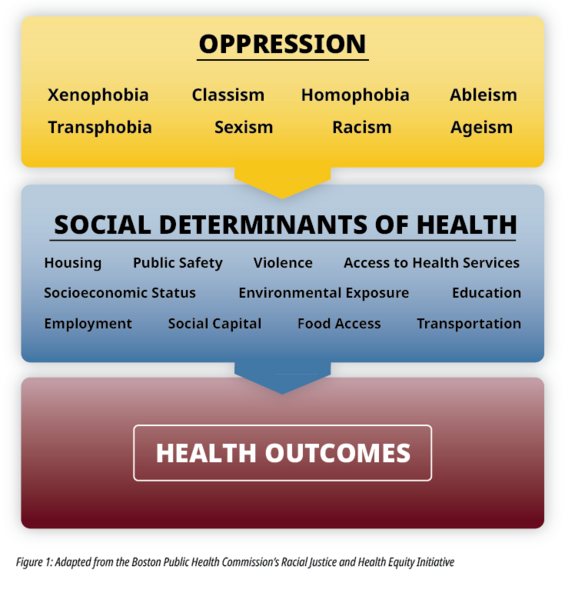About the Data
Pediatric diabetes data represent students in kindergarten through 8th grade only. The number of children reported with diabetes is based on the medical history of the children provided by the family, therefore undiagnosed and unreported diabetes cases are not included.
Prevalence is not age-adjusted; some of the observed differences in prevalence estimates between communities may be due to differences in the age distribution of students in each community. Also, please keep in mind that a variety of factors (genetic and environmental) can impact the prevalence of diabetes.

As you look at data on this webpage, you may see differences among population groups. The differences are especially noticeable between white people and people of color.
These differences exist because of structural racism. These differences are NOT because of an individual’s choices, behaviors, or identity.
Systems of oppression, such as racism, cause harm to everyone. They also influence the social determinants of health (SDoH), which impact health outcomes. See Figure 1.
It is important to keep these notes in mind when looking at the data and using it to inform public health efforts.
If you decide to share these data, remember to use racial equity context and framing. The DPH Racial Equity Data Road Map is one resource that can help.
About Pediatric Diabetes Data
Pediatric diabetes data are collected from approximately 1,800 public, private, and charter schools in Massachusetts in order to learn how much diabetes exists among students in kindergarten through 8th grade. School nurses report the number of children with Type 1 and Type 2 diabetes by gender and by grade, as well as by the city/town where the students live. Response rates among schools are close to 100%, resulting in a dataset that includes nearly all cases of diabetes in students in grades K-8.
Pediatric diabetes data can be used to learn about the statewide occurrence of diabetes in Massachusetts, and to identify which counties may have higher rates of diabetes than others. It can also be used to look at diabetes trends over time.